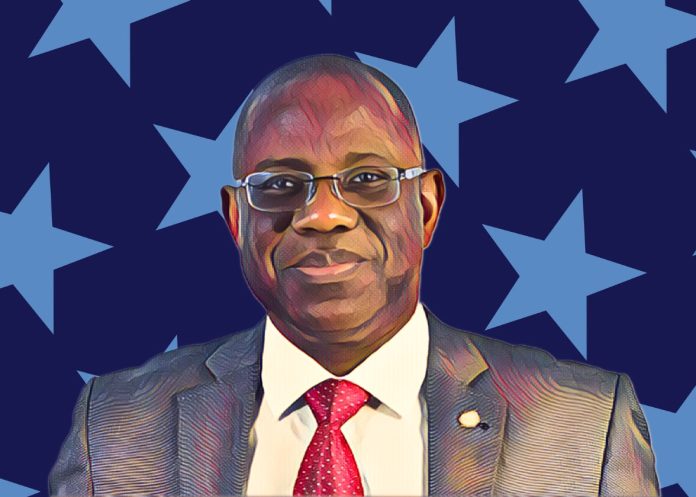KEY POINTS
- President Tinubu’s dissolution of NNPCL’s board and appointment of Ojulari underscores a push for fresh direction in Nigeria’s oil sector.
- The new CEO’s extensive experience in global energy markets and landmark local deals positions him as a potential game-changer.
- From boosting crude output to restoring public trust, Ojulari faces immense hurdles in steering NNPCL toward profitability and transparency
President Bola Tinubu has ushered in a new era for Nigeria’s oil sector with the appointment of Bashir Ojulari as the Group Managing Director and Chief Executive Officer of the Nigerian National Petroleum Company Limited (NNPCL).
The move, which also saw the dissolution of the company’s board, signals a strategic shift in the nation’s energy leadership.
In a statement released early Wednesday by the Special Adviser to the President on Information and Strategy, Bayo Onanuga, Tinubu invoked Section 59, subsection 2 of the Petroleum Industry Act, 2021 to effect the changes. “President Tinubu has reconstituted the NNPC Limited board and appointed a new Chairman and Group CEO,” Onanuga stated.
The outgoing GMD, Mele Kyari, and board chairman, Pius Akinyelure, were relieved of their duties, making way for an 11-member board. Ojulari’s appointment took immediate effect on April 2, 2025.
Ojulari: A seasoned technocrat takes the helm
Bashir Ojulari, a Kwara State indigene, brings over three decades of expertise in petroleum, process, and production engineering to the role.
Prior to his appointment, he served as Executive Vice President and Chief Operating Officer of Renaissance Africa Energy Company, where he spearheaded a landmark $2.4 billion acquisition of Shell Petroleum Development Company of Nigeria’s equity—a deal hailed as a milestone for indigenous energy firms.
The Punch reports that he is an alumnus of Ahmadu Bello University, Zaria, and he began his career as Elf Aquitaine’s first Nigerian process engineer before joining Shell in 1991.
His illustrious career spans managerial roles across Europe and the Middle East, with specializations in field development, asset management, and safety protocols. “His deep technical knowledge and global experience position him as a transformative leader for NNPCL,” remarked an industry insider.
The appointment has drawn mixed reactions. While stakeholders commend Ojulari’s technical prowess, analysts question whether he can navigate Nigeria’s complex oil sector challenges, including declining production, subsidy removal fallout, and transparency concerns. The Nigeria Extractive Industries Transparency Initiative (NEITI) urged Ojulari to “prioritize accountability and open governance” in a statement issued shortly after the announcement.
Meanwhile, Kyari’s exit marks the end of a tenure fraught with controversies, including pipeline vandalism and fuel scarcity crises. His successor inherits a corporation transitioning from a state-owned entity to a commercially driven limited company under the PIA 2021.



